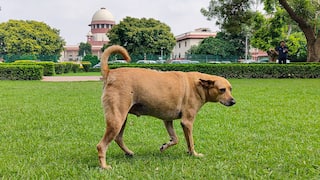Rules Regarding Debit-Credit Card, UPI Payment To Undergo Change From January 2022. Check Details Here
ATM, Debit Credit Card Rules: You will need to pay extra charges after you reach the free withdrawal limit in ATM. Rules for online use of debit-credit cards are also changing.

New Rules: Only a few days are left for the year 2021 to end. As soon as the new year would begin, many rules around you will undergo a change. The change in these rules will affect crores of people in the country. Many rules including rules for Google apps, ATM Cash withdrawal , use of debit and credit card will go through a change. Let us know what changes are going to happen.
Changes in rules of many Google apps
From January 1, rules associated with online payment on Google will change. This change has been done as per directives received from Reserve Bank of India. If you want to make a payment through Google's app with a Visa or Master card then you will have to put in all the details of the debit or credit card. Google will not save them anymore. Money will now be charged through a tokenisation system.
If you have RuPay, American Express, Discover or Diners Card and if you want to make payment through them, even in this case, all the information related to the card has to be refilled during online payment. You will not get an option to save the card here too. Actually to prevent the fraud taking place in Wallet or UPI app through 'Save Card' RBI had asked these kinds of apps to develop tokenisation system by scraping the option to save cards.
ATM cash withdrawal will charge more
From January 1 2022 after the free withdrawal limit on ATM bank, instead of charging Rs 20 per transaction, Rs 21 will be charged per transaction. Currently banks are allowing free withdrawal to the customers from its ATM upto 5 times per month. Withdrawing after the free withdrawal limit expires, banks used to charge Rs 20. But from January 1 after withdrawal for the sixth time Rs 21 plus tax on it will be charged.
Starting from January 1, first three withdrawals from banks of other ATM will be free which would include financial and non financial transactions. These cities will include Mumbai, New Delhi, Chennai, Kolkata, Bengaluru and Hyderabad. In non-metro cities 5 ATM transactions will be free. On making financial transactions in metro cities, Rs 20 per transaction and Rs 8.50 has to be paid on non-financial transaction.
Rules for online use of Debit and credit cards will also change
Making online payment is quite common these days. People prefer to make online payments instead of keeping money with them. Whether it's ordering food, shopping or booking a cab, people go for online transactions and their passwords, debit and credit card details are saved on the same portal. Although, along, with Online Banking there has also been a sharp increase in number of online frauds. Therefore, to make online payments more secure, Reserve Bank of India (RBI) has asked to remove all the sensitive details of the debit and credit cards of the customers from merchants and payment gateways which was saved by them.
New Debit Card and Credit Card Rules will come into effect from January 1, 2022 and RBI has also asked merchant and payment gateways to use encrypted tokens to transact. Banks have also started informing their customers about it. While using the token, you need not give details like, expiry date, card number, and CVV, the way it is required while using/debit and credit card transactions.
In the bank charges will be incurred on depositing an amount of more than Rs 10,000 .
In India Post Payments Bank, you will be able to deposit only an amount upto Rs 10,000 in the savings and current account. IPPB has given an information on its website that when this limit of Rs 10,000 is exceeded, customers will have to pay extra charges. Actually, three types of savings accounts that can be opened in India Post Payments Bank in which basic savings accounts each have different rules.
IPPB Other than IPPB savings account means the basic saving account, there will be no charges on withdrawal of Rs 25,000. However, every time after this free limit would br reached, a charge of at least Rs 25 will have to be paid, due to which withdrawing and depositing in IPPB will become costlier.
Related Video
Union Budget 2025: Arvind Kejriwal lists the shortcomings of the Modi government's budget | ABP News | AAP





































